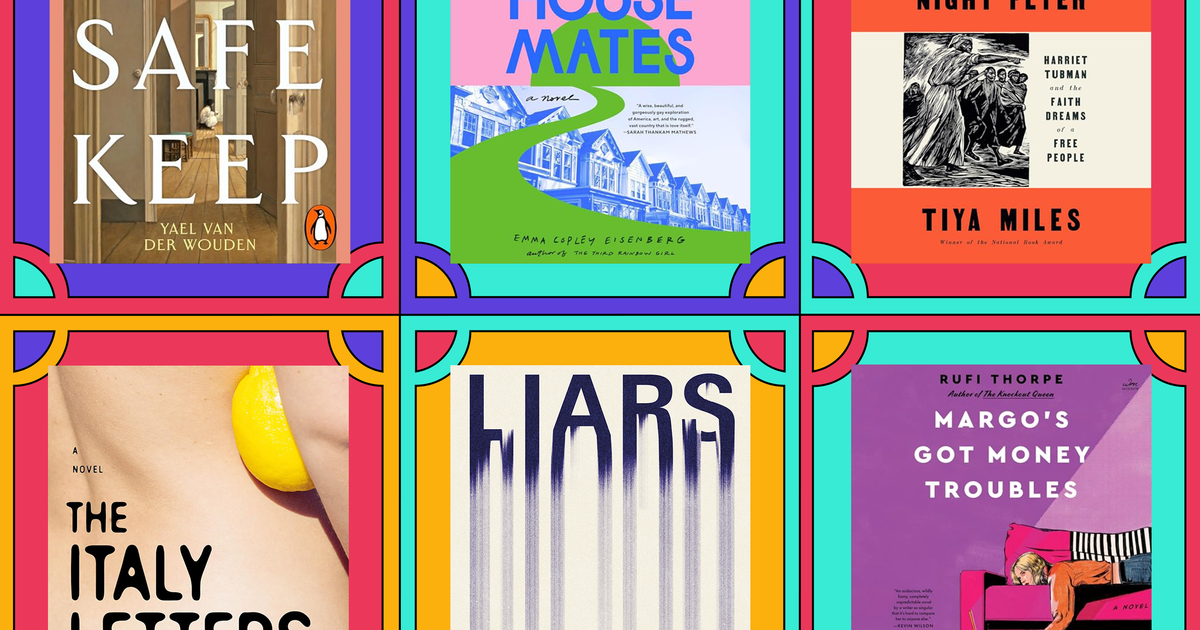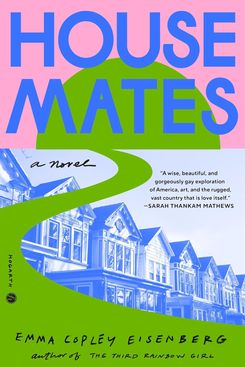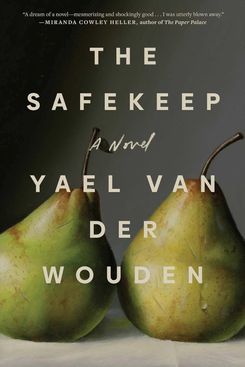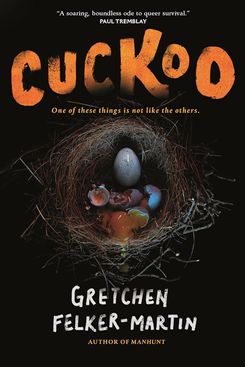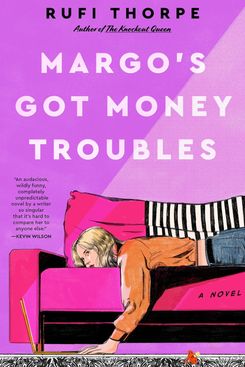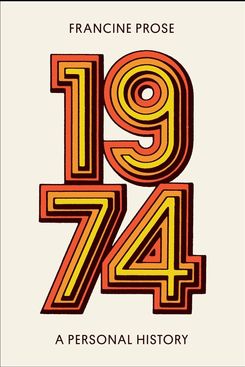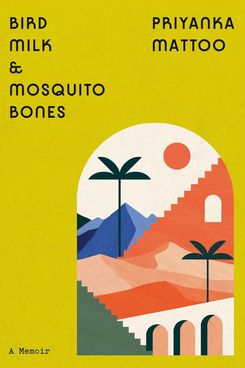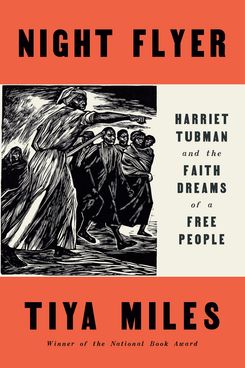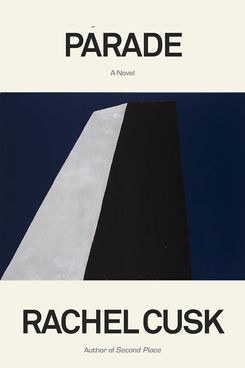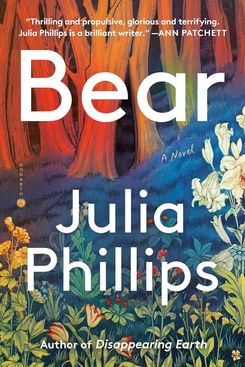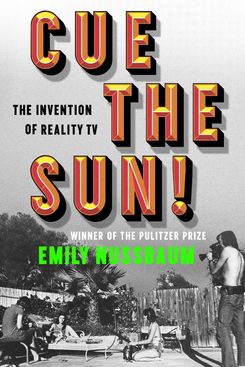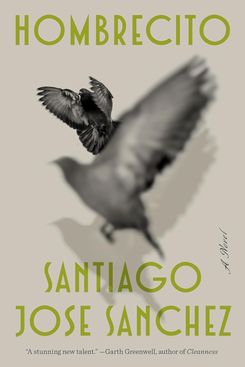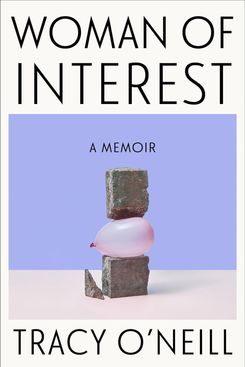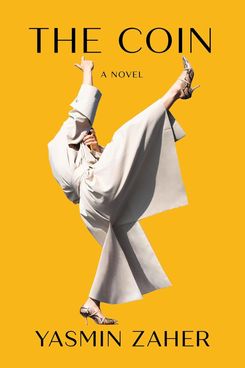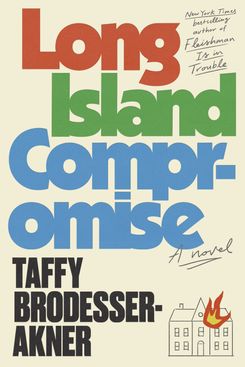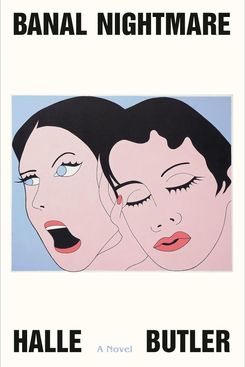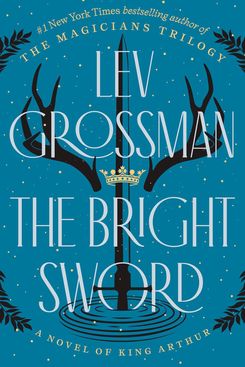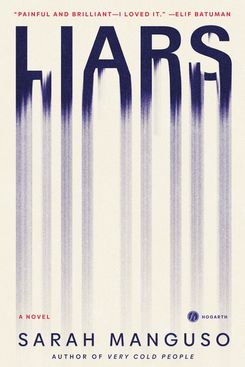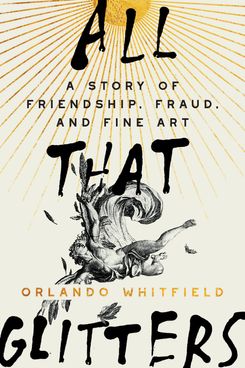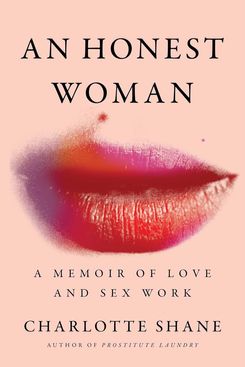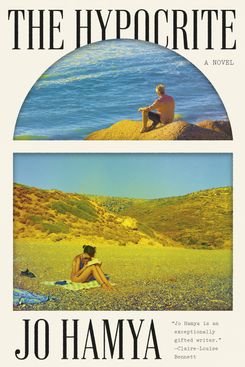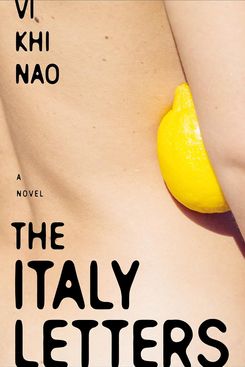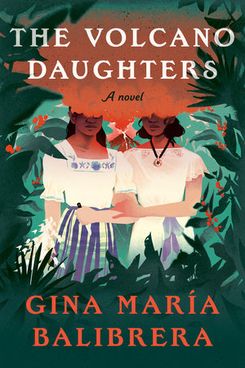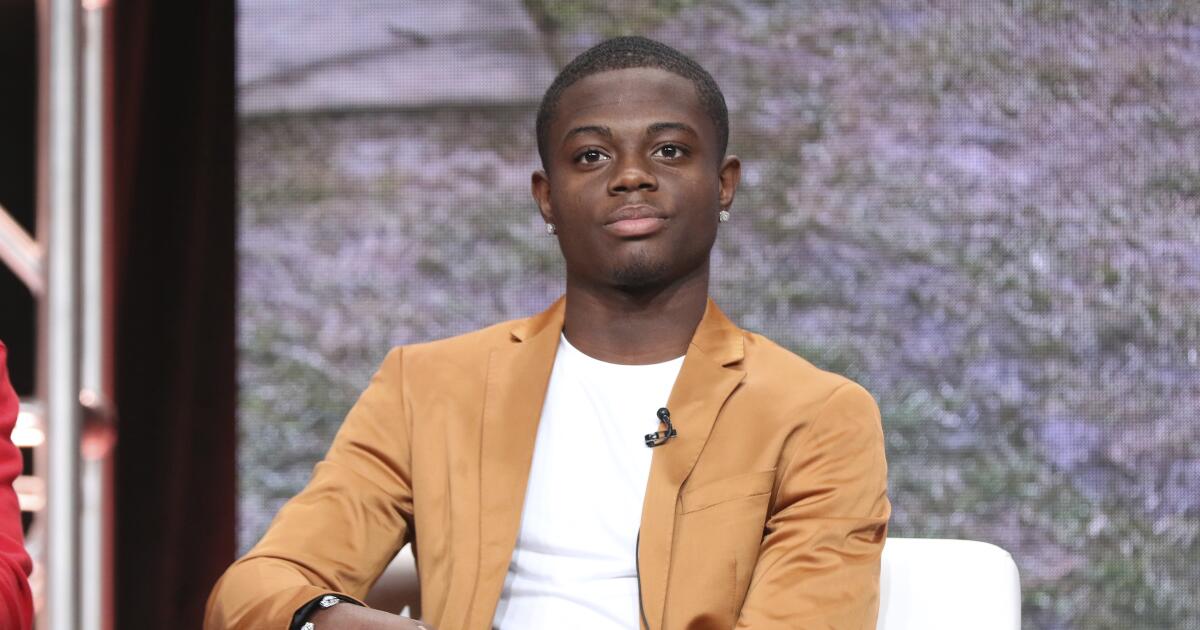Photo-Illustration: Vulture
In a season ripe for luxuriating in small indulgences — a headfirst dip in the cold pool, the first lick of ice cream, an evening stroll in the long shadows of a late sunset — there are few more rewarding than an afternoon with a new book. This summer, we’re reading books about mothers (loving them, missing them, resenting them, being them), bad art friends (the type who commit fraud and otherwise), and even the Knights of the Round Table (yeah, there’s a new Arthurian retelling). We’re going on road trips with messy friends in a debut novel and on a trip to the 1970s with an established writer’s new memoir. Go ahead, find your place in the sun, and crack open a new book — you deserve a little treat.
Emma Copley Eisenberg made a name for herself with The Third Rainbow Girl, a gripping work of narrative nonfiction that weaved together a decades-old double murder in West Virginia with Eisenberg’s own queer self-discovery. Her debut novel, Housemates, proves she’s just as skilled a fiction writer as she is a journalist. Here, Eisenberg deftly reimagines and queers the road-trip novel by focusing on the lives of two young artists coming to terms with how they relate to themselves and to art. The story follows housemates Bernie and Leah, who embark on a trip across rural Pennsylvania to pick up artwork bequeathed to Bernie by her disgraced former photography teacher. Bernie would rather refuse, but Leah convinces her to go and turn the trip into a project by documenting the journey in photos and writing. The relationship between Leah and Bernie is messy and honest. Together, the two must confront how they feel about art produced by people who do harm — and the limits of their compassion. —Isle McElroy
Set in the summer of 1961 in a house in the Dutch countryside, this tantalizingly slow-paced novel sucks in readers by setting up an opposition between its two protagonists: repressed, isolated Isabel, who lives alone in a family house that’s been bequeathed to one of her brothers in the event that he marries, and that brother’s flashy, charismatic girlfriend Ava, who comes to stay with Isabel against her will, rupturing her quiet life for good. The tormented Dutch relationship with the Holocaust comes into play here, not quite surprisingly — processing the legacy of the Holocaust is mandatory in many Dutch best sellers — but here, it has truly surprising consequences. Fans of Patricia Highsmith and Ottessa Moshfegh’s Eileen will find much to admire here. Recommended for reading outdoors while eating a ripe pear. —Emily Gould
Gretchen Felker-Martin’s impressive new novel, Cuckoo, shifts away from the large-scale dystopia of her previous novel, Manhunt, to explore the claustrophobic dystopia of a “conversion camp from hell.” Sixteen years after seven teens are abandoned at an isolated desert conversion camp, the survivors of that terrible summer must come together to put an end to Camp Resolution. Felker-Martin sees clearly how queerness and survival often go hand in hand, but what makes her work so exciting is the power and resourcefulness of her characters. Queerness is not something to survive, but a state of being that enables one to thrive in the face of ongoing attacks. In Cuckoo, the attempt to right past wrongs, to overcome collective trauma at the hands of institutions, transforms into a cosmic endeavor. By saving themselves, these characters are fighting to save the world. —I.M.
Nineteen-year-old Margo gets pregnant by her community-college English teacher and decides to keep the baby. Once he’s born, Margo loses her waitressing job and half her roommates, then panics about how she’ll make ends meet. The solution? OnlyFans. Her former pro-wrestler dad Jinx helps her craft a persona on the site and even moves in to help with the baby. But trouble looms in the shape of Margo’s baby’s father, her newly morally upright mother, and Jinx’s druggy demons. Plus, Margo might be falling for one of her regulars. This deeply funny, thoughtful, riveting book has already been optioned for a TV series by A24, so if you actually read the book, you can safely claim to be an early adopter. —E.G.
By the mid-1970s, the revolution promised by the ’60s counterculture had failed, leaving its participants to confront a more cynical decade rife with paranoia and a general sense of futility. In her new memoir, 1974: A Personal History, novelist and critic Francine Prose traces that shift through the lens of her brief friendship and quasi-romance with Tony Russo, who a few years earlier had helped Daniel Ellsberg leak the Pentagon Papers, a tranche of confidential files exposing the federal government’s lies to the public about the war in Vietnam. In excavating her relationship with Russo, Prose attempts to better understand the aimlessness of her 20s and to parse what exactly drew her to a compellingly brave but unstable man who had once hoped he could change the course of history. Along the way, Prose deftly zigzags through the pop-culture touchstones of her youth, throwing everything from Vertigo to Kurt Vonnegut’s Mother Night into dialogue with a chaotic period of both her life and American history. —Chris Stanton
Talent agent, producer, and podcaster are but a few of the titles Priyanka Mattoo has held over the course of a prolific career in Hollywood, and while she surely has a rich cache of stories featuring entertainment A-listers that could fill several memoirs, she largely avoids this period of her life in her forthcoming Bird Milk & Mosquito Bones. Instead, in a series of essays that jump through time, Mattoo paints a vivid portrait of a global upbringing that results from her family’s ousting from their home state of Kashmir, a historically disputed territory in northern India. Memoirs documenting the experience of conflict-induced displacement is a large subgenre, a somber reflection of the global state of affairs. But Mattoo’s book is rare in its humor, its curiosity, and its openness to a world that was seemingly reluctant to give its writer a place to call home. —Anusha Praturu
Tiya Miles’s 2021 book, All That She Carried, was a creative history of the Antebellum South told through a sack — containing a dress, pecans, and a lock of hair — that an enslaved woman gave her daughter when the latter was sold. Like the scholar Saidiya Hartman, Miles engages in “critical fabulation,” a way of reading between the lines of the historical record to imagine what’s been left out of the archive. With her new book, Night Flyer, she takes that same approach to write about Harriet Tubman, attending to the ecological and religious aspects of the 19th-century abolitionist’s political thought. —Brandon Sanchez
With 2021’s Second Place — inspired by Mabel Dodge’s account of D.H. Lawrence’s visit to Taos, New Mexico — Cusk reminded her devotees that she can do more than write in a seemingly autobiographical mode. Now the author returns with Parade, which promises to subvert the conventions of the novel. We’ve seen bits of the book already: In the braided New Yorker short story “The Stuntman,” an artist begins painting his wife upside-down; then, on the streets of Paris, one woman physically attacks another, turning to admire the result before fleeing. “I believed that the relationship between visual art and human character was more violent and psychologically revelatory than that between authors and their words,” Cusk said of the story. Expect a masterful marriage of her fictional and essayistic modes that probes questions of genius, cruelty, relationships, and art. —Jasmine Vojdani
What’s a tourist town without a little class tension? In Julia Phillips’s second novel (after 2019’s Disappearing Earth), the fraught relationship between the hordes of vacationers that descend on Washington State’s San Juan Island every summer and the people who serve them is at the center of the action — that and a bear. Sisters Elena and Sam are approaching their 30s, but they still live with their mother, who’s been sick for much longer than anyone expected. Elena, who works at a golf club, and Sam, a snack-bar cashier on the ferry that runs back and forth from the mainland, have private dreams of escape, but for now, they’re in a frustrating holding pattern. When a massive bear starts lurking in the woods around their house, Elena is illogically drawn to it, despite Sam’s insistence that she’s putting herself in danger. Bear captures the tedium of servicework and the mood shifts, from love to anger and back again, inherent to sibling relationships. —Emma Alpern
Everyone has an opinion about reality TV — wouldn’t you like yours to be educated? New Yorker writer (and former Vulture TV critic) Emily Nussbaum charts the rise of the genre, starting with a compelling argument for its genesis in the late-1940s radio-TV crossovers of Candid Microphone/Camera and Queen for a Day. “In an era when women were expected to marry early and have kids, then stay tight-lipped about anything that went wrong, these agonizing public displays of suffering were at once degrading and glorifying, like sainthood” — sound familiar? She goes on to update the many-times-retold story of An American Family with fresh reporting, explores the squishy ethics of ‘90s staples like The Real World and Cops, and closes on the one-two punch of Bravo and The Apprentice. Just when things were getting interesting! —Julie Kosin
Santiago Jose Sanchez’s debut, Hombrecito, is a beautiful coming-of-age novel about the fractured bond between a young queer man and his mother. After moving her sons from Colombia to Miami, the protagonist’s mother grows distant, disappearing into her new environment while her son embraces his sexuality and his life in the city. As he grows older, they drift further apart, and, when he moves to New York, he finds himself searching for — and failing to find — meaning in the beds of lovers. A return to Colombia forces him to grapple with a homeland he hasn’t known for much of his life while he attempts to restore his relationship with his father. At the center of it all, though, is the tense and moving relationship between mother and son. Seeing her in her home country reveals the sacrifices she made and the secrets she attempted to keep. Hombrecito is a remarkably honest portrait of self-discovery that is full of tenderness and desire and grief — all the things that make us human. —I.M.
During the early days of the pandemic, the novelist, raised in New England to adoptive Irish parents, became suddenly obsessed with the idea of finding her Korean birth mom. (“To friends, I declared I was only late to the party — as usual — on my own rotten mommy issues.”) O’Neill’s delightfully willful memoir recounts the twists and turns in her detective’s hunt, from being ghosted by a private investigator to heading to Korea at the height of lockdown. O’Neill is a true stylist; her prose brims with intelligence, energy, and humor. This memoir exploring identity and family is unlike any other. —J.V.
An elegant lady moves to New York, a place she finds depressing and filthy and which she comes to fear is filthifying her. But what choice does she have? She’s Palestinian, and for all her family’s money, none of them had ever managed to leave — until now. In her debut novel, Zaher draws a Venn diagram of the glamorously neurotic and the politically oppressed, then sets her protagonist spinning in that maddening little overlap. —Madeline Leung Coleman
“Do you want to hear a story with a terrible ending?” That’s a bold question to ask at the beginning of a novel, especially when it’s arriving on a wave of high expectations following a debut best seller (Fleishman Is in Trouble, in this case) that was made into an Emmy-nominated limited series. But Brodesser-Akner does not shy away from the bold in her writing, and that remains true in her forthcoming book, which opens with husband, father, and factory owner Carl Fletcher getting kidnapped right out of the driveway of his Long Island suburban home. This is not a story about a man who goes missing, though. It’s a family saga that explores how that singular event, which is resolved seemingly happily early in the novel, reverberates over the years through the lives of everyone in Carl’s wealthy Jewish family. As she did in Fleishman, Brodesser-Akner once again demonstrates a gift for capturing the dark, unforgiving things people do and say to the ones they are supposed to love the most. —Jen Chaney
In her first two novels, Jillian and The New Me, Halle Butler created captivating studies of obsession and discomfort. Her newest novel, Banal Nightmare, follows Moddie, a young woman who moves back home to the Midwest from New York after a breakup with her megalomaniac partner. There, she’s forced to endure the horror and humiliation of hanging out with her old childhood friends, facing off against all their buried resentments and revenge fantasies. The sudden arrival of a heralded artist — who is completing a residency at a nearby university — forces Moddie to confront the demons she tried to avoid in New York. Butler is a skilled and clever prose stylist who humanely spotlights the most ridiculous parts of being alive in this surprising and hilarious book. —I.M.
Grossman’s Magicians trilogy predated what would become a dominant trend in fantasy fiction in the last decade: taking familiar genres full of inhuman heroes, comforting magic, and brightly hued magical places, and recasting everything to be darker, more flawed, more strange, and unnerving. In The Magicians, Grossman’s world was a Narnia-esque land of escapism. In Bright Sword, it’s an Arthurian retelling from the point of view of a young knight who arrives at the Round Table just after everything has fallen apart. Like the best of Grossman’s work, it is funny and sweeping and occasionally uneasy, but the medieval-romance structure allows Bright Sword even more space to capitalize on Grossman’s talent for digression, dawdling, and finding unexpected trapdoors inside stories. —Kathryn VanArendonk
“In the beginning, I was only myself … Then I married a man, as women do.” The opening of Sarah Manguso’s second novel portends an epic tragedy: A writer falls in love with a struggling filmmaker who reveals himself to be intimidated by her success. As he cobbles together a career and instigates multiple moves across the country, an asymmetrical division of domestic labor cleaves between them, leaving the writer to raise “the child” and little time for much else. The narrator’s “all-consuming love” for the child grows in parallel to her anger at her husband’s slow betrayal. (“My husband frequently asked me why I was so much angrier than other women. It always made me smile. I was exactly as angry as every other woman I knew.”) In this painful and beautifully wrought story of a relationship that spans over a decade, short paragraphs make time pass fluidly, in bursts of propulsive specificity. Manguso is a poet-novelist who knows brevity can whittle the sharpest knife. —J.V.
Imagine your messiest college friend — the one who transfixed you early on, becoming a folk hero in your eyes through a mix of envy, possible lust, and car-crash looky-looism — commits a number of very chic crimes. And then you get to write the book about it, which immediately gets optioned by HBO. Orlando Whitfield is living the dream. All That Glitters, his accounting of Inigo Philbrick’s bad art friendship and even worse art fraud, is dishy and vulnerable and propulsive. The access Whitfield has as Philbrick’s friend (turned business partner, employee, and eventual professional rival) is astonishing, and even more astonishing that he’s spilling like this. It’s as if you’re in the room with him, going, “Wow, that’s crazy” as he processes the friendship in real time. —Bethy Squires
The author and essayist returns with a rigorous and compulsively readable memoir about her career as a sex worker and the possibilities of romantic love between men and women. Shane excavates her relationships with her father and the boys she grew up with, measuring the harm of inherited lessons about sex and the value of girls’ hotness against the power and freedom sex work later afforded her. “My sense that I wasn’t sexually appealing could have kept me from sex work,” she writes, “but instead, I think, it drove me to it.” This personal and professional investigation resonates and entices. —J.V.
Old resentments and generational differences between a father and a daughter are thrown under the spotlight, quite literally, in Jo Hamya’s new novel about a play about a book. Sophie is a young playwright, whose divorced boomer father is a famous author past his prime — his novels deal in certain sexual politics and gender dynamics that have aged poorly. He joins the audience of his daughter’s play without reading any reviews, which means he’s startled to see a staged version of a working vacation he and Sophie took a decade prior. While her father sits through the excruciating experience of watching an actor in his favorite shirt womanize and behave boorishly while dictating a book, Sophie anxiously awaits her father’s response to the show at lunch with her mother, who has her own baggage with Sophie’s father. Hamya’s tightly constructed story bounces through time, place, and perspective to maneuver the tricky nuances of personal experience and art. —Tolly Wright
In this epistolary novel, an unnamed narrator writes a fevered stream of text from Las Vegas, where she’s staying with her ill mother. In between searching the internet for symptoms, meeting with a bankruptcy lawyer, and trying to convince her “overzealous assimilated” mom to eat Vietnamese food, she fantasizes about sex and confesses every shameful aspect of her longing to her lover, who’s living with her husband in Italy. But it’s obvious that her attempts to maintain “the umbilical cord of desire and need” that connect them are bound to fall short. Vi Khi Nao’s work crosses mediums — poetry, film, and visual art, to name a few — and her intensely lyrical latest novel has a similar range, putting the erotic side by side with political and personal history. —E.A.
In this novel, based on the 1932 massacre of up to 30,000 mostly Indigenous people in El Salvador, a pair of sisters flee genocide: Garciela, who was raised in a community perched near a volcano but removed at age 9 and forced to serve as an oracle to dictator “El Gran Pendejo” (the Big Asshole), and her long-lost sister Consuelo. As the years pass and Garciela’s gruesome prophetic visions take shape, the sisters escape to Paris, California, and beyond, variously losing and recovering each other. “Stories all have masters who control the way they’re told and whom they’re told to,” the author writes. This tale is told by a chorus of lively ghosts, who “are dead but we sing, we cackle, we lose our shit, we tell you exactly what we think …” A bilingual, mythological, and original debut about resistance and survival. —J.V.




